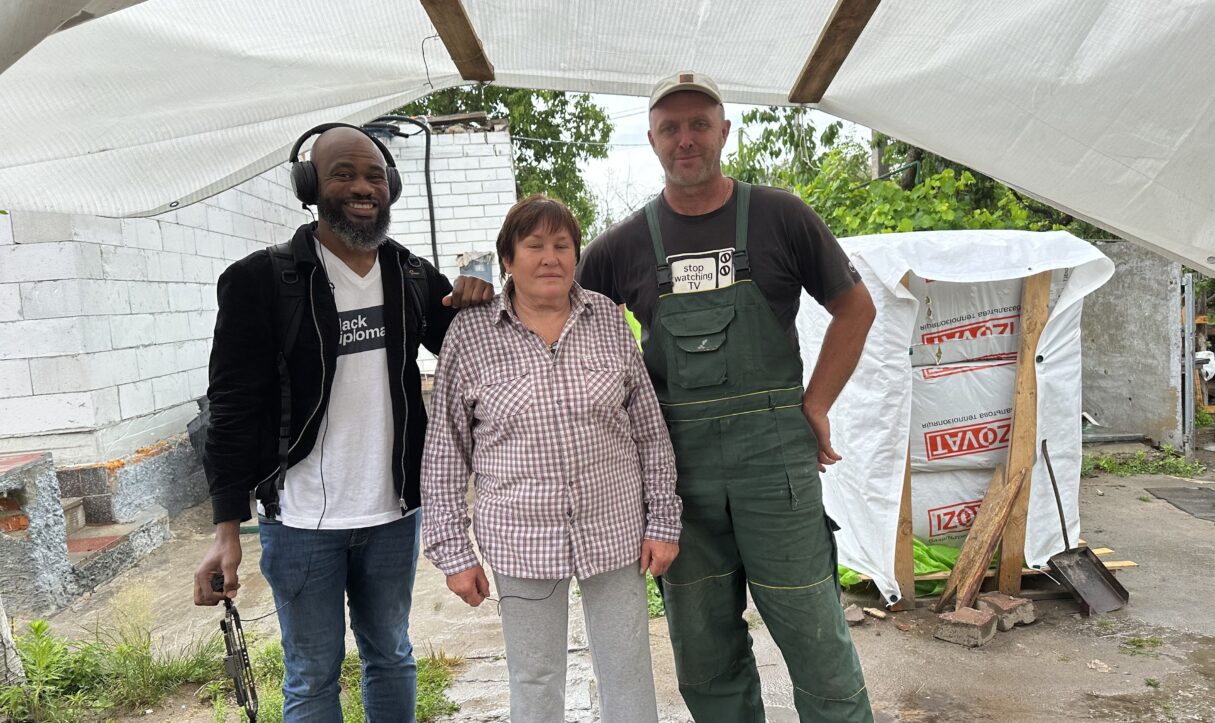For those still stuck on the name change from Twitter to X, you’re probably in the majority and in good company. Among that crowd of kindred spirits is someone who has experienced the floodgates of attention after cracking the algorithmic code to going viral on the platform. Terrell Jermaine Starr currently has over 315k followers on X thanks largely to his live coverage as a Black American living in Kyiv, Ukraine at the outbreak of Russian attacks in early 2022. He is also the third and final profile for year one of the Creative Capsule Residency (our first two profiles can be found here and here).
Terrell received his undergraduate degree in English from an HBCU (historically Black college or university), served in the Peace Corps, has two Master’s degrees (one in Russian, East European, and Euroasian studies and another in Journalism), and has won a Fulbright, among many other notable accomplishments and accolades. At his core though, he still proudly claims his hometown: the largest Black city in America, Detroit, Michigan, and now maintains residency in Brooklyn.
When we spoke, we both celebrated and lamented our experiences as people of color in a field that is not always kind to faces like ours working to expand understandings and approaches to audience engagement. With each passing day, however, finding ways to engage and empower audiences not typically included in foreign policy or national security discussions becomes more important, whether that’s through mediums like my column The Mixed-Up Files of Inkstick Media or Terrell’s person-to-person videos on the lived reality for Ukrainians.
Molly: The 101 icebreaker: tell me a little bit about yourself.
Terrell: Yeah, sure. I’m an expert on this region [Russia & Eastern Europe], particularly Ukraine. I’ve been studying this part of the world for more than 20 years. I first went to Russia in 2001 and around then began to understand Russia from a colonial perspective. It was my first experience fully coming to grips with what imperialism means. I’m not trying to make this some wonky conversation that nobody cares about, but I started understanding world powers and control and domination. That made me interested in learning more about how smaller countries could resist bigger ones.
Molly: You went viral for your live coverage on Twitter (now X) from Ukraine last year. What was it like to go viral and did that affect your relationship with journalism?
Terrell: I had to learn to be okay with the fact that I am not a traditional journalist. It’s taken me more than a year to realize that my virality happened because I broke all the rules of what a journalist is “supposed” to do. People saw me because I had a heart and I cared. I think that through all the very rigid and traditional style reporting, which has its place, my work and my presence helped people of all backgrounds to care. So, I was most proud to see Black people engaged with my content given that Black people are some of the most disengaged groups within mainstream foreign policy conversations. And that’s not for no reason, mind you. This field is very aggressively anti-black. In fact, I think the field is anti-anything-non-white.






















